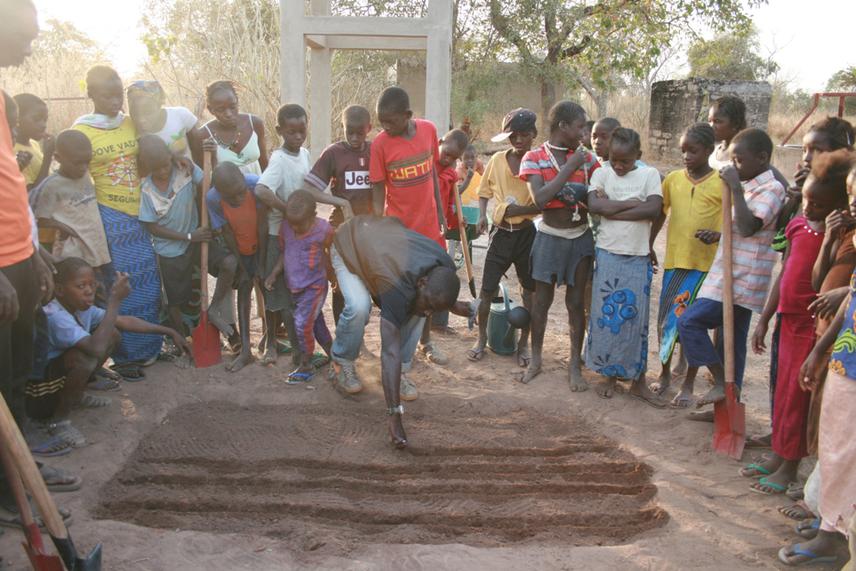Tabitha Ndiaye
Other projects
14 Jan 2013
Waste Management and Sustainable Employment Within and Around Parc National du Niokolo Koba (PNNK), Senegal
The aim of the project is to initiate a system of waste management and recycling within and around Niokolo Koba National Park in southwest Senegal, and to introduce biogas digester systems as a technology to produce cooking gas from organic waste.

Students at Dar Salam school preparing seed beds for their school garden.
CRP Simenti field station was set up in 2007 by the Cognitive Ethology Laboratory (The German Primate Center) to study the behaviour of free-ranging primates within Niokolo Koba National Park, a UNESCO Endangered World Heritage site. Since then, students working within the park have found that park agents are motivated to manage waste appropriately, but the knowledge, organization and facilities for this are not available. Currently waste is burnt and/or dumped at a short distance from ranger posts and tourist camps throughout the park. This results in the emission of toxic fumes and creates open air rubbish dumps with wild animals scavenging adjacent to and within living areas. A similar situation exists in the nearby town of Tambacounda; toxic fumes from the mass burning of plastics, as well as water and soil pollution pose considerable threats to the environment and to the health of local people.
Within the park, concrete animal-proof “recycling centres” will be constructed for the collection and separation of rubbish, with posters erected to give clear instruction of how rubbish should be categorised and disposed of. Some rubbish will be burnt on site using incinerators designed by a local Peace Corps volunteer, all other non-organic waste will be collected and transported to Tambacounda.
In Tambacounda we will work with a local NGO to provide 25 households with bins to separate their rubbish into organic and non-organic materials. A large storage container will be constructed in the town and non-organic rubbish from these households and from within the park will be taken here, sorted and used by local enterprises or transported to larger recycling facilities in Dakar.
To process organic waste, a pilot biogas digester system will be developed and built at CRP Simenti; this system will be used to transform waste food into fertiliser and methane gas for cooking, at the same time reducing the scavenging of waste food by wild animals. In Tambacounda organic waste will be used to start a small-scale compost project together with a local farmer.
The long-term goal of this project is to expand to work over a larger area and to work together with local enterprises to develop waste recycling facilities in Tambacounda. This will enable this project, once established, to generate enough income to become self-sufficient.